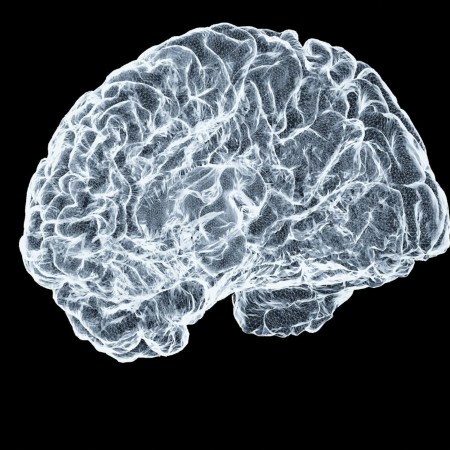We’re all pretty accustomed to talking about the microbiome. It’s got a nickname, “the gut,” and a bevy of associated colloquialisms:
- “Gut instinct”
- “Go with your gut”
- “I can feel it in my gut”
- “Butterflies in my stomach”
- “Stomach in knots”
But for how casually and frequently we reference the gut, few of us know exactly how it works, why it sometimes doesn’t or much about its intimate relationship with the brain. Even medical experts have only recently come to appreciate the microbiome’s connection to mood, anxiety and neurodegenerative disease.
That’s because the microbiome is a complex community comprised of trillions of microbes — and every single gut is unique to the specific person. It’s an ecosystem as mysterious to us as the deep ocean, or outer space or the brain…which it evidently shares a “communication highway” with.
If you fancy yourself an armchair gastroenterologist, find studies here, here and here (plus a really fascinating video here, from the Center for Brain Health) that have way more to say about this all-important “gut-brain axis.” But for the TL;DR version, just know that a healthy gut can contribute to a healthy brain. At a time when more of us are seeking mental counsel than ever before (and antidepressants, unfortunately, are proving ineffective for some patients), optimizing one’s gut health could prove an inside track for improved mental health, too.
In so many words: “[The] emotional and cognitive centers of the brain are linked with peripheral intestinal functions.” It’s possible to influence the presence and prevalence of neurotransmitters like dopamine, glutamate, GABA, and serotonin in the brain by “cleaning up” your gut.
To be clear, there’s no one-size-fits-all approach for resetting one’s gut health. Different guts will respond differently to different inputs. But most generally, the goal is to have a diverse array of health-promoting bacteria. Taking proactive steps today won’t just aid in effective digestion, or heart health. It’ll help lighten whatever’s going on in your head, too.
How to Completely Empty Your Head Before Bed
Pilots, surgeons and other professionals who can’t afford a bad night’s sleep share their strategies for reliable shut-eye1. Eat “Colorfully”
Diversity in the gut starts with diversity on your plate. If your meals lean monochromatic (and that color is caramel brown), you’re probably not getting enough plants in your diet. Remember: 75% of the global diet comes from 12 plants and five animals. That’s outlandish. Diversity in the gut starts with diversity on your plate. Eat lots of fruits, let vegetables be the star every few dinners or so and ease yourself onto a higher fiber intake.
2. The Mediterranean Diet
By now, yes, we know that dieting isn’t a good idea. But the ingredients and credos of the highly-celebrated, heart-healthy Mediterranean diet are dynamite for the microbiome. It’s built on whole grains, fruits, vegetables, seafood, beans, and nuts, with processed crap hard to come by. You don’t have to ditch your old dishes overnight and pretend you grew up in Corfu; try to eat in a Mediterranean style once in a while, and take note of how you feel.
3. Probiotics and Prebiotics
Fermented foods like yogurt, sauerkraut, kefir, cottage cheese, miso and kombucha all contain probiotics that are capable of “preventing or minimizing intestinal inflammation.” Probiotic foods replenish the supply of healthy bacteria in your gut. If you truly detest every food on that list, (and some people do), look into a probiotic supplement. They’re everywhere these days.
As for prebiotics…that’s what probiotics eat. You can get them from fruits, vegetables, whole grains and other fiber-rich foods. They also are available via supplements, if you’d prefer. But as we’ve explained, it’s good to get in the habit of eating a diverse diet.
7 Simple Habits to Foster a Healthier Workday
From more meal prep to less AI, these routines will ameliorate days on “work island”4. Elimination Time
One more reminder that every gut is different. So the smartest way to go about optimizing one’s gut involves accepting the foods you simply can’t process. (Chances are, you’ve been aware of it for some time.) If a certain ingredients usually brings on bloating, nausea, or worse, it’s probably causing inflammation in your gut.
5. Mind the Vices
You know. Alcohol, fast food, desserts. More specifically, don’t mess with processed foods or beverages that are full of preservatives, fillers or artificial sweeteners. These things don’t just depress the brain — they trigger a damning loop effect, with your microbiome essentially teaching itself to crave more.
6. Sleep Matters
Unsurprisingly, keeping up a consistent and quality sleep-wake cycle will only help your gut. (Your gut health, your circadian rhythm, your sense of energy, your longevity…it’s all connected.) Look to get in the habit of cutting off your eating at least two hours before sleeping. Also not-so-surprising relevant lifestyle behaviors: hydration and movement.
7. Go to the Doctor
If your gut is in dire straits at the moment, this should probably be your first step, but we understand that men are especially reluctant to address their gut health with a medical professional. Still, if none of the above seem to be working — or in general, you could use an official/personal perspective, in order to get going — schedule an appointment. You’ll feel better you did, trust us.
The Charge will help you move better, think clearer and stay in the game longer. Subscribe to our wellness newsletter today.



























